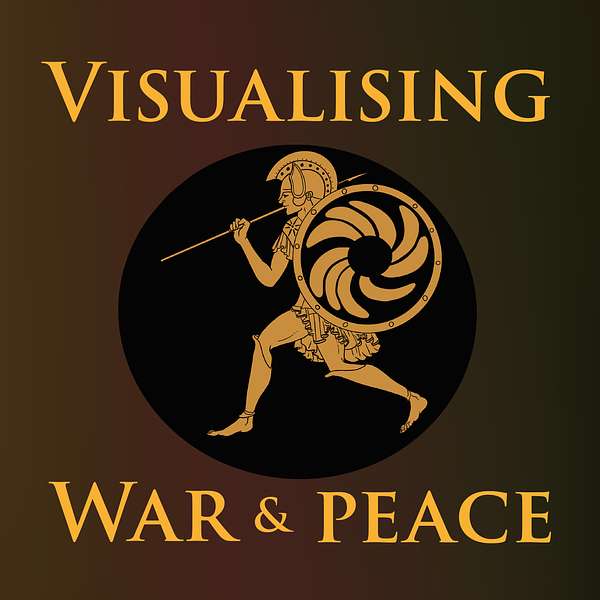
Visualising War and Peace
How do war stories work? And what do they do to us? Join University of St Andrews historian Alice König and colleagues as they explore how war and peace get presented in art, text, film and music. With the help of expert guests, they unpick conflict stories from all sorts of different periods and places. And they ask how the tales we tell and the pictures we paint of peace and war influence us as individuals and shape the societies we live in.
Visualising War and Peace
Children, Childhoods and Child-Soldiering: critical lenses on war
In this podcast Alice interviews Dr Jana Tabak, an Assistant Professor at the Department of International Relations at the State University of Rio de Janeiro. Jana’s work focuses on children’s experiences of conflict in both the global south and the global north, and also on the role that our conceptions of childhood play in our habits of visualising war – and, indeed, in how our habits of visualising war shape how we view children and childhoods. More broadly she is interested in children’s political subjecthood and their ‘political becoming’: how ideas of children get deployed in global politics, how children’s agency as political actors gets constrained by adult frameworks, and what children can contribute to politics (and particularly to discussions of war and peace) when mechanisms for their inclusion work better.
Together with Marshall Beier, Jana has edited two influential volumes on Children, Childhoods and Everyday Militarisms (in 2020) and on Childhoods in Peace and Conflict in 2021. These draw attention to the multiplicity of both real and imagined childhoods, and how different militarisms intersect with and inform different childhoods around the world. Some of Jana’s published work focuses particularly on representations and conceptions of child soldiering in different parts of the world. In 2020 she published a monograph called The Child and the World: Child-Soldiers and the Claim for Progress, along with a range of other articles on related topics; and her current project is looking specifically at recruitment of junior soldiers in the UK.
The episode begins with discussion of our norms of visualising children and childhood, particularly how concepts of children/childhood get constructed in and for global politics. Jana stresses that such habits tend to exclude children as political subjects in the present, while including them as potential citizens in the future. More worryingly still, Jana notes, the reduction of conceptions of childhood to one idealised model can end up 'othering' children whose childhoods (through no fault of their own) differ from standard/Western expectations.
We consider the tendency, when visualising children-in-war, to regard them as ‘passive skins’, victims with no agency to shape their own fate; and we also ask how this shapes our understandings of war and conflict, not just views of children and/as victims. Jana helps us look critically at the many forms of militarism which touch different children's lives, and we spend some time considering how 'child soldiers' tend to be visualised, in comparison with junior recruits to (e.g.) the UK's armed forces. Along the way, Jana stresses the importance of doing research with children as co-producers of knowledge, and of exploring the blurred/maleable boundaries of both childhood and war.
We hope you find the discussion interesting. For a version of our podcast with close captions, please use this link. For more information about individuals and their projects, please visit the University of St Andrews' Visualising War website.
Music composed by Jonathan Young
Sound mixing by Zofia Guertin